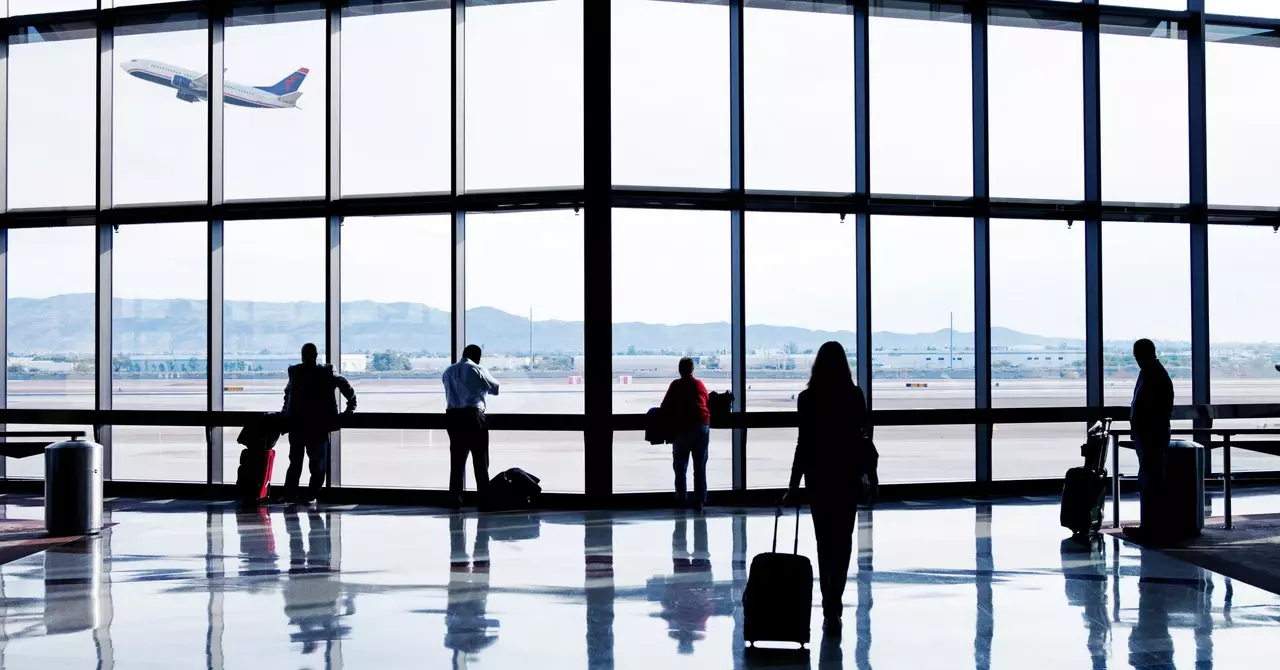Airports are notorious for eliciting peculiar and sometimes disruptive behaviors, ranging from mundane to downright alarming. Instances of travelers sprawled on the airport floor or practicing yoga in waiting areas may seem harmless, yet there are darker narratives of late-night brawls or individuals attempting to force open aircraft doors mid-flight. The frequency of such disturbances has surged, raising alarms about the growing phenomenon of “air rage.” Consequently, some airlines and travel experts have suggested banning or limiting alcohol sales at these transit hubs. The question remains: what psychological triggers contribute to this glaring shift in behavior once we step foot inside an airport?
For many, traveling represents the commencement of an adventurous journey, igniting a unique mindset. This anticipation transforms the airport into a space imbued with the excitement of forthcoming leisure—a time when everyday anxieties are momentarily eclipsed by the promise of relaxation and indulgence. However, this expectation is not universal. Travelers grappling with an inherent fear of flying may respond to this looming dread by resorting to alcohol as a coping mechanism. Their reactions may manifest as peculiar behaviors, defying their usual composure amidst the sensory bombardment characteristic of airports, such as noise, crowds, and disarray.
Environmental psychology sheds light on these intriguing dynamics. It posits that our surroundings significantly influence mental states and decision-making processes. When overstimulated by the hustle and bustle of airports, individuals often experience stress and anxiety, leading to irritability. This heightened emotional state can manifest in unruly conduct, especially among those already predisposed to anxiety.
The Liminal Nature of Airports: A Psychogeographic Exploration
Exploring airports through the lens of psychogeography reveals a deeper understanding of the emotional impacts these spaces impart. Psychogeography examines the interrelation of environment and emotion, particularly within urban settings. Airports serve as “liminal spaces,” akin to mythical “thin places” revered in Celtic traditions. Within these zones, individuals exist in a transient state—caught between the present and future, reality and adventure.
Passing through the security checkpoint offers a disorienting dissolution of national borders, thrusting passengers into a global no-man’s-land where geographical and temporal identities blur. Travelers oscillate between time zones as they prepare for takeoff, often losing their sense of temporal control. The anticipation inherent in air travel can eventually cultivate a sense of anxiety, particularly when delays breed frustrations that disrupt expectations.
At the airport, the present moment becomes an unwelcome intruder; thoughts gravitate toward future plans—connecting flights, new destinations, and excursions that lie ahead. This intense focus on an uncertain future can ignite frustrations when faced with unexpected issues such as delayed departures or lengthy queues. The overlapping of temporal expectations with real-time challenges can act as a catalyst for a range of emotions, often resulting in outbursts from travelers who feel powerless over their circumstances.
The airport environment exemplifies a paradox where individuals yearn for imminent leisure while simultaneously navigating discomfort and disarray. The convergence of hope, anxiety, and discontent produces a uniquely volatile atmosphere that fosters erratic behavior.
Understanding the psychological facets of airports and their influence on behavior is imperative for reinforcing our collective travel experience. While the airport is a site of transition, it is also a hotspot for complex emotional responses—shaped by anticipation, anxiety, and disconnection from the present moment. As the airline industry grapples with rising incidents of air rage, recognizing the underlying psychological triggers is essential for devising strategies to cultivate a more harmonious travel environment. The next time you find yourself at an airport, take a moment to reflect on the intricate mind dynamics at play, as they might just be contributing to the eccentric behaviors surrounding you.

